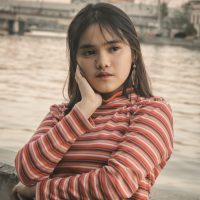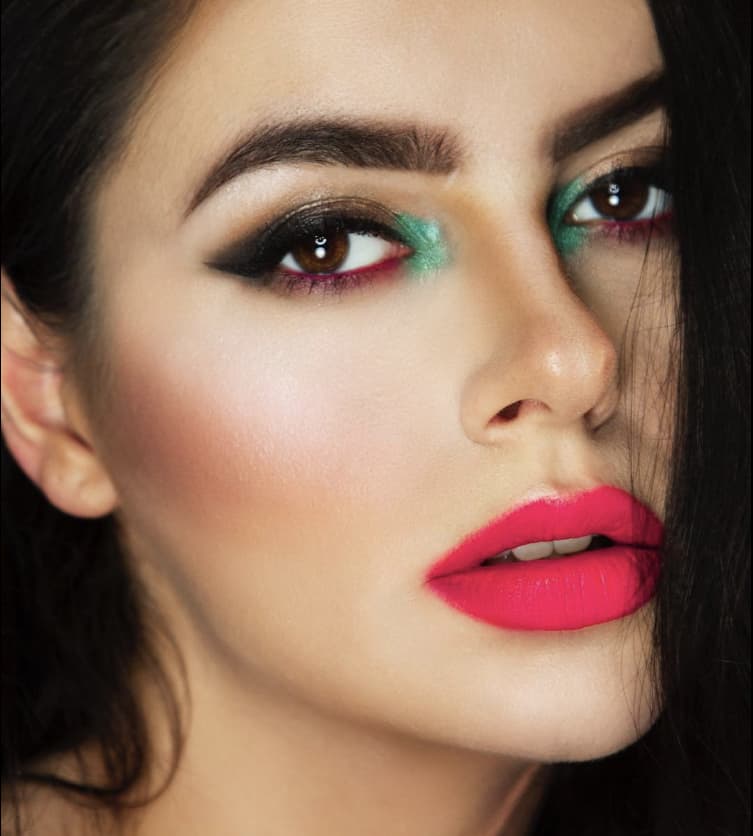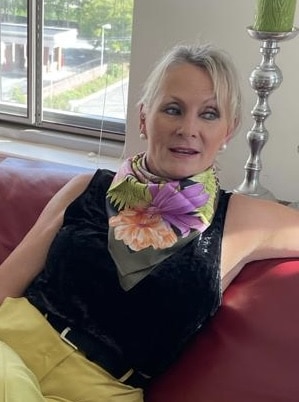The Cause. The Effect. The Cure.
The love for high fashion and all that surrounds this industry has penetrated our society to the core. After all, real fashion as defined by the premier fashion houses signifies social status or even position in the community. Advertising campaigns show us how we should look, and fashion bloggers and magazines go one step further to show us the success we can achieve by looking a certain way. The most attractive people will adorn themselves in designer clothing and accessories. They will have the most friends, the best social lives, the happiest families, and the most rewarding careers, right? Well, that’s what we are told and that’s what we have bought into. To feel better about ourselves, we first have to feel bad.
Let’s take a closer look…

From a spiritual perspective, Eckhart Tolle writes in A New Earth, Awakening to Your Life’s Purpose that people in the advertising industry know well that in order to sell things people don’t really need, they must convince them that those things will add something to how they see themselves or are seen by others; in other words, add something to their sense of self. They do this by telling you that you will stand out from the crowd by wearing a particular product and so by implication, be more fully yourself. Or they create an association in your mind between the product and a famous person, or designer. The unspoken assumption is that by buying their product you become like them, or rather the surface image of them. And so in many cases you are not buying a product but an “identity enhancer.” Designer labels are primarily collective identities that you buy into. They are expensive and therefore “exclusive.” If everyone could buy them, they would lose their psychological value and all you would be left with would be their material value, which likely amounts to a fraction of what you paid.
So who is actually doing the work, producing these Designer labels?

Garment workers in Cambodia
According to Anna-Mari Almila, Research Fellow in Sociology of Fashion at London College of Fashion, “Women of color around the globe are making our clothes very cheaply in poor conditions. There is global inequity in all areas of the way the fashion industry works.”
We might also take into consideration a recent article written for The Guardian on June 11, 2020, by Kalkidan Legesse, titled “Racism is at the heart of fast fashion-it’s time for change.” Legesse does a fabulous does job of exposing a continuous cycle of racism that few people are talking about. Here’s a summary of her reporting:
“Of the 74 million textile workers worldwide, 80% are women of color, earning wages well below the poverty level. The fashion industry has been reliant on the exploitation of garment workers since its conception. Brands have created a production model that keeps garment workers poor and working in unsafe conditions to maximize their profits. The buying practices of fast fashion include turning a blind eye to illegal subcontracting and allowing forced and unpaid overtime. These practices have incentivized the erosion of garment worker rights by manufacturers and government. Western consumers want cheaper clothes and brands want to make larger profits margins. The injustices and exploitation in fashion supply chains are either accepted by consumers or obscured by conscious marketing campaigns peddling female empowerment.”
A recent post on Legesse’s Instagram account @wowsancho read: “Fast Fashion Couldn’t Exist Without Modern Slavery”
IN SUMMARY, we are told what look is acceptable; we need to spend more money to feel better about ourselves; and we don’t really need to know how our clothing and accessories are being made, or who is really profiting.
What would a fair and equitable fashion industry look like?
How about starting with the price of our goods being tied to fair wages, better working conditions for the workers, and the use of sustainable and eco-friendly materials instead of lavish advertising campaigns and high executive salaries.
What is yours to do?
The next time you are in the market for clothing or accessories why not seek out an independent designer in your area? A Black-Owned Business? A Pop-Up shopping event? Consider the artistry and the quality of the material, the craftsmanship, and details. Check the labels to see if the fabric is sustainable? Where was the product made? Is the price based on quality or the Designer label?
Now may be a great time to reevaluate how you shop. To help with that we have selected three outstanding small business women. Take a look and let us know what you think.
**********
Recommended designers in DC, Maryland & Virginia

Fashion Designer, Lady Mariama
Check out the handwoven fabrics and unique designs, all sewn together with attention to detail, offered by Lady Mariama, Rockville, MD. Mariama has lived all over the world and has been exposed to the world of fashion at all levels!
Lady Mariama designs have graced the runways of DC Fashion Week, DC Swim Week, NY Fashion Week, and Amsterdam Fashion Week. Her line has also been offered in-store at Flying Solo, New York City.
You can follow her on Instagram @mahriama_onitiri or peruse her website at LadyMahriama.com

Designer/Stylist, Chaza Betenjane
Looking for the BEST and CUTEST 3D tees? Look no further than Maison Chazelle. Syrian designer Chaza Betenjane is the Queen of 3D designs that fool the eye every time. At first glance it may look like you are wearing a bow, or a tie, or a vest. But a closer look reveals it’s all 3D! You cannot wear one of her designs without being noticed. She has combined luxury and comfort. Her time is NOW!
Maison Chazelle has been featured in Model World Magazine; and on the runways of DC Fashion Week and DC Swim Week. You can find her on Instagram @maisonchazelle or shop her website at MaisonChazelle.com

Designer, Folake Ojo
Meet Folake Ojo, CEO of Lizkela, a fashion powerhouse designed for confident individuals who enjoy African inspired fashion. Born and raised in Lagos, Nigeria, her exclusive handbag collection incorporates traditional elements from a rich cultural heritage with modern influences.
One of my favorites is the Nexus clutch (the perfect black purse) which incorporates a dual colored maze of black on black, inspired by the Kuba cloth from Congo. It’s classy and chic!
In addition to her love for fashion and her creative style, Folake holds a degree in Biotechnology from Penn StateUniversity and a Master’s Degree in Immunology from Long Island University. And if that’s not enough, she has appeared in TV commercials!
You can follow Lizkela on Instagram @lizkela or shop her website at Lizkela.com
********
If you know of a small business that offers unique clothing and accessories, or that has a story to tell, let us know. We would love to get the word out!
Article written by Karen Caruso, Founder and CEO of CashmereAndPearls.com, Alexandria, Virginia USA



Leave A Comment